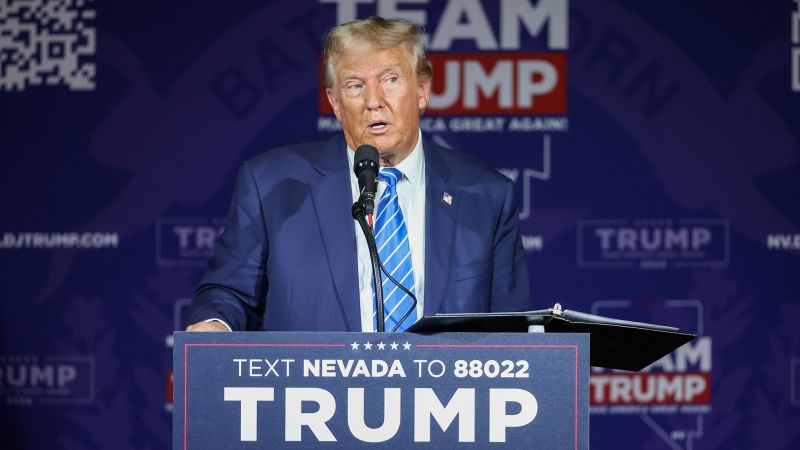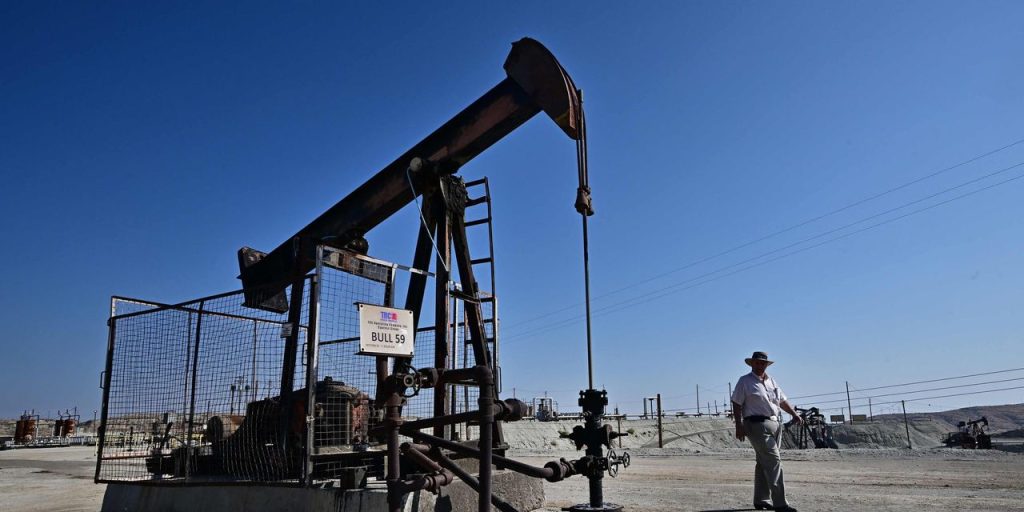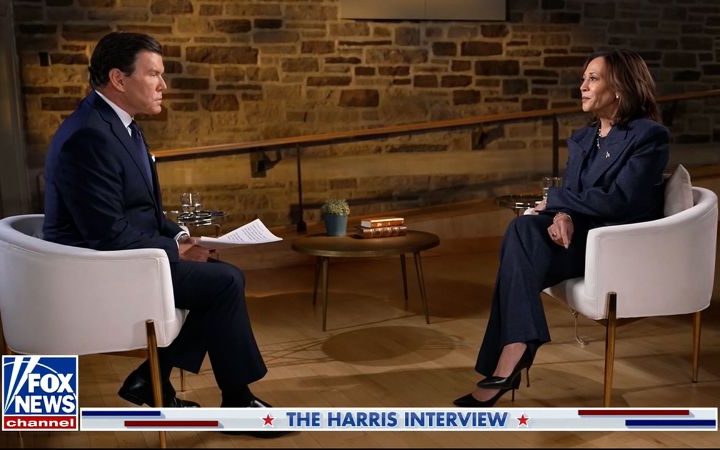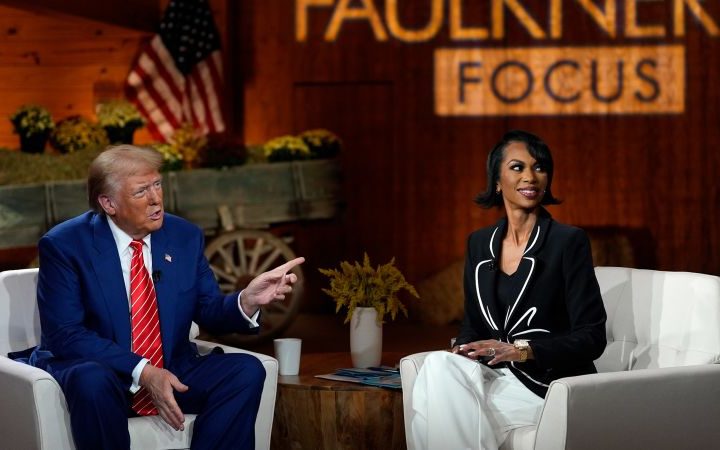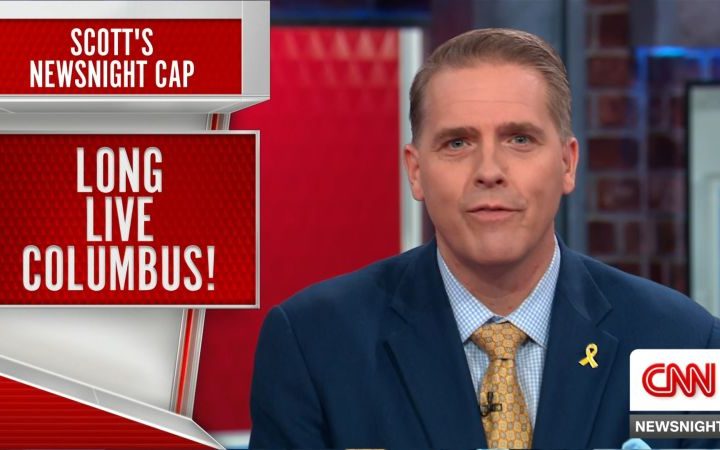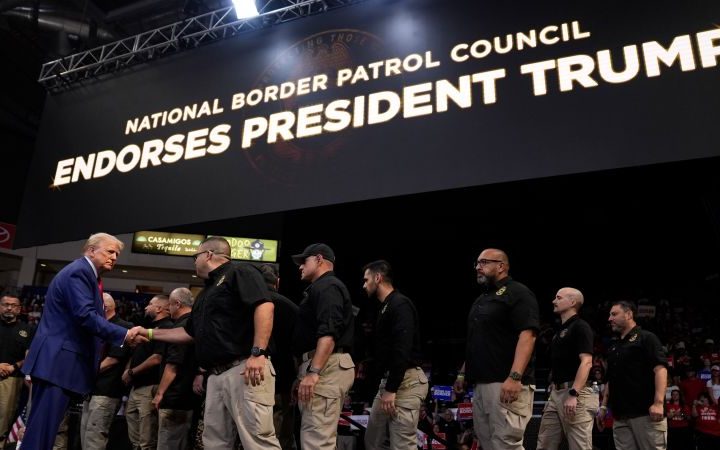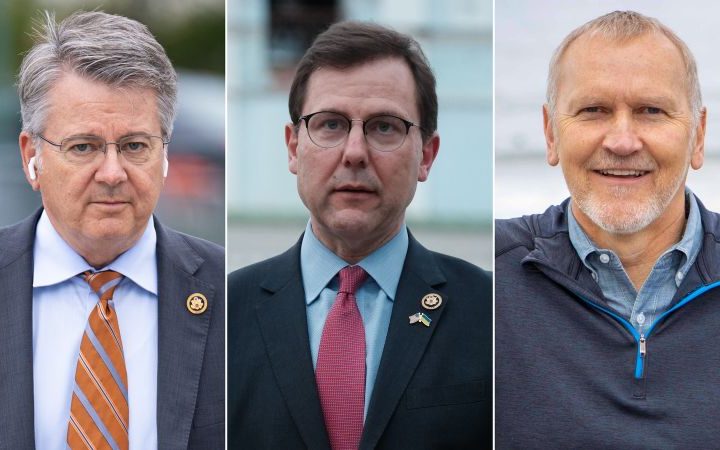Some members of the Minnesota Supreme Court appeared skeptical of removing Donald Trump from the 2024 ballot, and posed difficult questions at a hearing Thursday to the challengers who claim he is disqualified under the 14th Amendment’s insurrectionist ban.
But there was also some openness to the challengers’ request to hold future hearings to flesh out the arcane constitutional matters at stake. The justices said they would issue a decision at a later time.
A group of Minnesota voters filed the lawsuit to block Trump from the ballot, asking the justices to enforce Section 3 of the 14th Amendment, which was ratified after the Civil War and says American officeholders who “engaged in insurrection” are prohibited from holding future office.
This is one of several anti-Trump candidacy challenges across the country. A related weeklong trial is underway in Colorado and a similar case in Michigan is scheduled for oral arguments next week.
Minnesota Supreme Court Chief Justice Natalie Hudson said she was “concerned” that taking the drastic step of removing Trump from the state’s ballot would lead to “chaos” of “50 different states … deciding this question differently.”
“Let’s say we agree with you that Section 3 is self-executing, and that we do have the authority under the relevant statute to keep Mr. Trump’s name off the ballot. Should we – is the question that concerns me the most,” Hudson said.
Associate Justice Barry Anderson said he saw a “very serious problem” with the challengers’ argument that courts are the appropriate venue to resolve this “political question.” (Just last week, a federal court in New Hampshire rejected a similar lawsuit, citing those grounds.) Hudson also said the Constitution as a whole suggests “this is a national matter for Congress to decide.”
“At best, there’s mixed authority out there,” Hudson said. “I guess my question then, is doesn’t that suggest we use caution and some judicial restraint and maintain the status quo, if you will?”
Four of the five justices who participated in the hearing were appointed by Democratic governors.
Derek Muller, an election law expert at Notre Dame Law School, filed a brief in the case that was neutral on Trump’s eligibility but offered analysis of key legal questions. After the hearing, he told CNN that it looks like the court was inclined to stay out of “contested political disputes” like disqualifying Trump.
“The justices seemed skeptical that Minnesota Supreme Court should hear a claim like this,” Muller said.
An attorney for the anti-Trump challengers, Ron Fein, urged the justices to “uphold the US Constitution and defend American democracy” by ruling that Trump is disqualified from office. Fein is the legal director at Free Speech For People, a liberal-leaning advocacy group backing the anti-Trump challenge in Minnesota.
“Beginning before the 2020 election and culminating on January 6, 2021, Donald Trump engaged in rebellion and insurrection against the Constitution of the United States in a desperate attempt to remain in office after losing the election,” Fein said. “Section 3 of the 14th Amendment protects the Republic from oath-breaking insurrectionists because its framers understood that if they’re allowed back into power, they will do the same or worse.”
Some of the justices peppered him with sharp questions, suggesting he faces an uphill battle to get Trump’s name off the ballot. Pressed on the possibility of nationwide chaos if Trump is removed from some ballots but kept on others, Fein said, “courts must follow the law even if it is inconvenient.”
Trump attorney Nicholas Nelson argued that past rulings in 14th Amendment candidacy cases “overwhelmingly” say that judges should stay out and leave the issue to Congress or to the voters.
“There is no more political question in our Constitutional order than who should be president… it’s for that reason that, when parties asked the courts to step into that process and to decide who can or can’t be president, the courts overwhelmingly say that’s not a decision that should be made in the judiciary,” Nelson said.
The 14th Amendment doesn’t define “insurrection” or what it means to “engage” in insurrection – vagueness that complicates the challengers’ case against Trump.
Associate Justice Gordon Moore asked both sides to define “insurrection” – and Nelson said it should be interpreted as “organized warfare … oriented toward breaking away from, or overthrowing the US government.”
“We would say that what happened on January 6 was a crime, some of them serious, was violence, some of it serious – but that it did not reach the scale or scope of what would be regarded as an insurrection,” Nelson said.
Minnesota’s Secretary of State Steve Simon, a Democrat, hasn’t taken a position on Trump’s eligibility for office. An attorney for Simon said Thursday that his office does not have the power to remove Trump on its own, but would do whatever the court tells them to do.
They asked the high court to resolve the matter by early January, so there is enough time to print ballots for the state’s GOP primary on March 5, which is Super Tuesday.
CNN’s Avery Lotz contributed to this report.
Read the full article here
